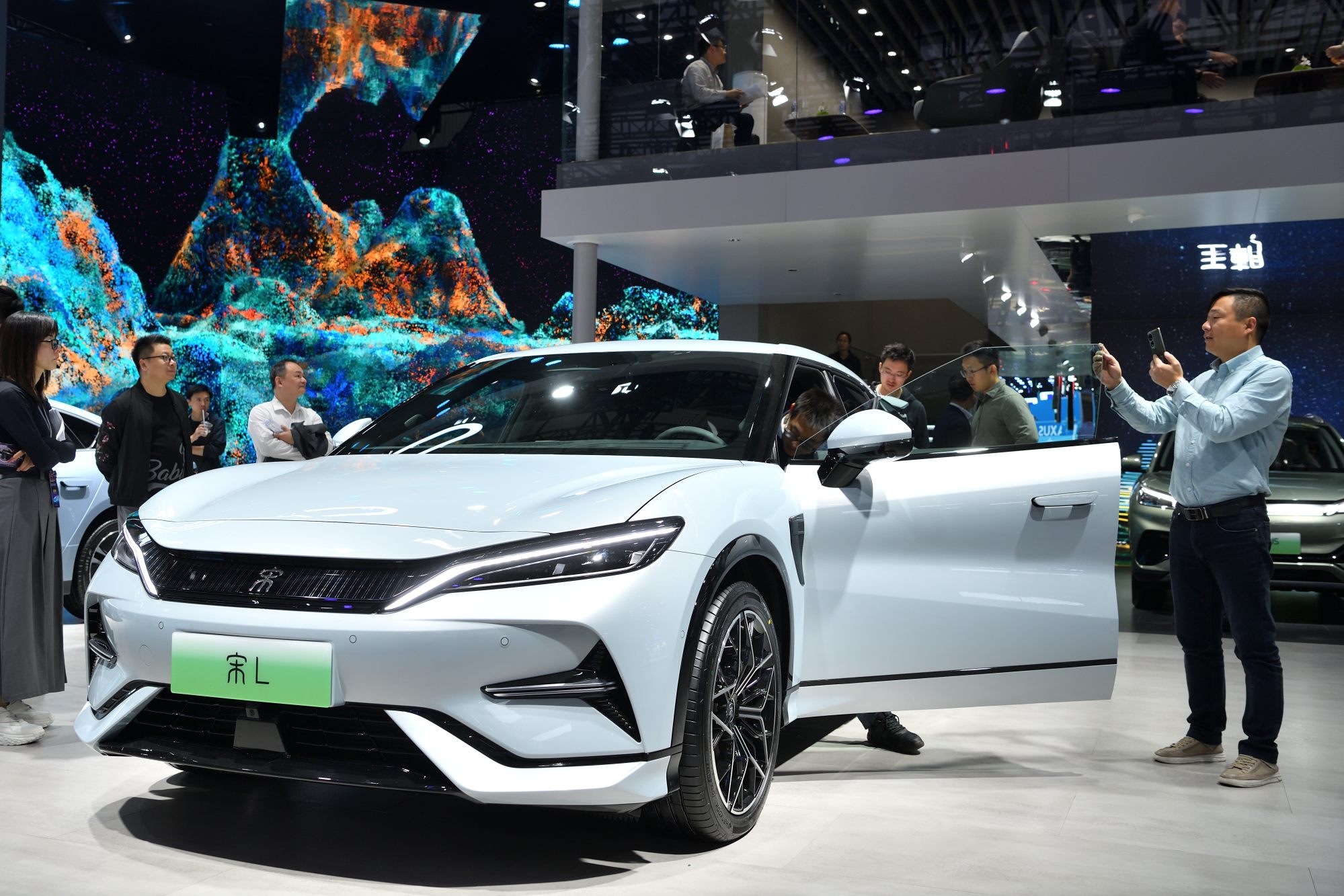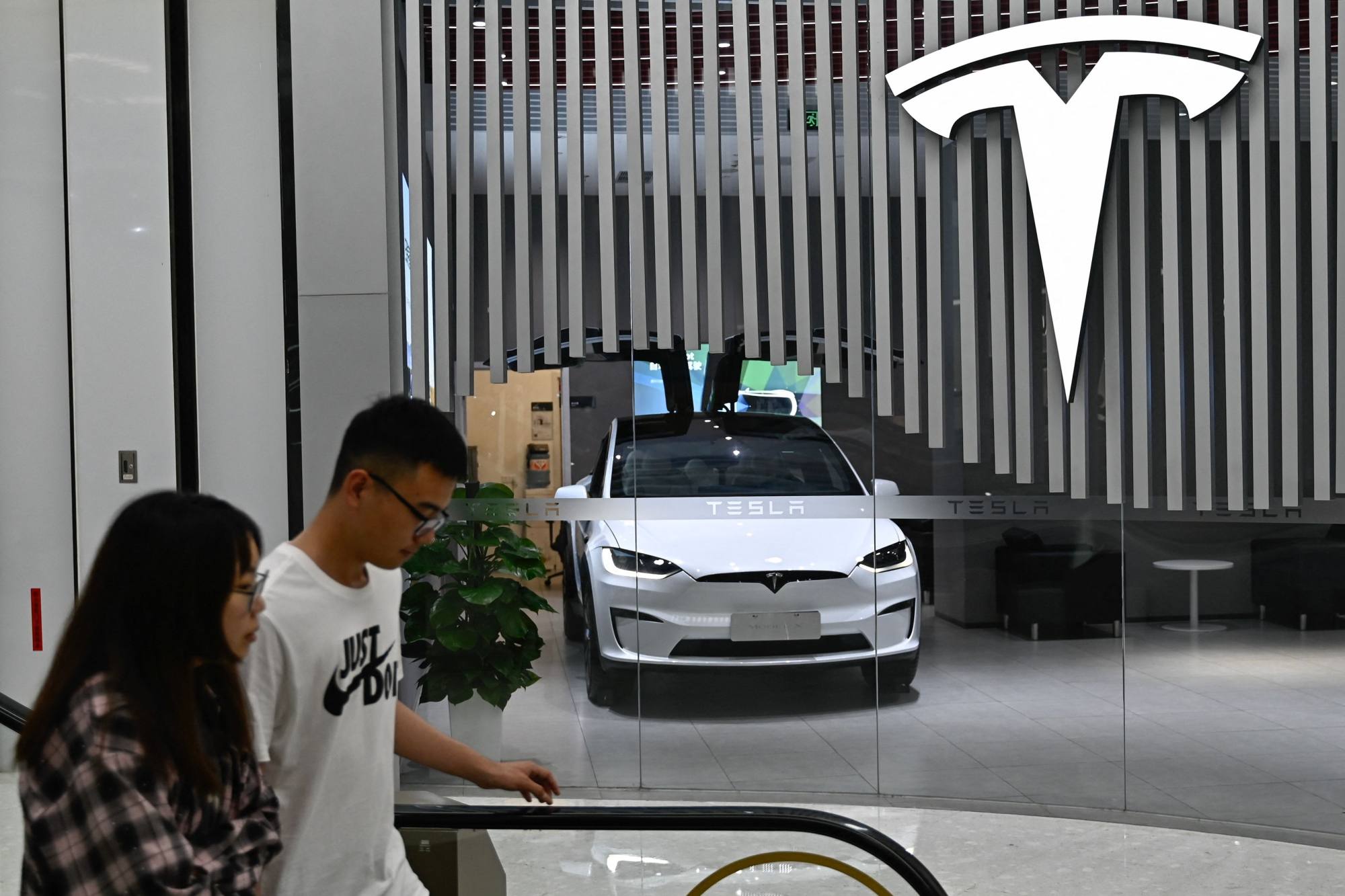BYD overtook Tesla for the first time in quarterly sales, as customers worldwide snapped up automobiles that are driven by hybrid petroleum-electric power trains to assuage lingering concerns about battery-powered electric vehicles (EVs).
Sales at the Shenzhen-based carmaker, the world’s largest assembler of hybrids and pure EVs, jumped 24 per cent to 201.12 billion yuan (US$28.2 billion) in the three months that ended on September 30, more than Tesla’s US$25.18 billion in third-quarter revenue, according to the two companies’ results.
BYD’s net profit increased 11.5 per cent from a year earlier to 11.61 billion yuan (US$1.63 billion) in the quarter, less profitable than Tesla’s net income of US$2.17 billion in the same period.
Do you have questions about the biggest topics and trends from around the world? Get the answers with SCMP Knowledge, our new platform of curated content with explainers, FAQs, analyses and infographics brought to you by our award-winning team.
The results underscore Tesla’s growth bottleneck in China, the world’s largest automobile market, as buyers migrate from internal combustion engines to EVs in a shift that may see 60 per cent of all new vehicles being driven by batteries by 2030. Tesla sells four models of pure EVs in China, fewer than BYD’s portfolio of several dozen EVs, hybrids and petroleum-driven vehicles.

“Unless Tesla further lowers its prices, introduces new models or launches its Full Self-Driving feature in China, it is unlikely to see further growth in China”, said Yale Zhang, head of the Shanghai consulting firm Automotive Foresight. “If Tesla wants to sell more EVs, it can only depend on sales growth in other overseas markets.”
BYD sold 1.13 million hybrids and EVs combined in the third quarter, a jump of 37.7 per cent from a year ago, and 15 per cent growth from the second quarter. It was the first time the company sold more than 1 million vehicles in a quarter.
Hybrids saw the biggest growth, as sales soared 75.6 per cent from a year earlier to 685,830 units, 4.3 per cent more than the second quarter. Tesla sold more pure EVs, with its delivery of 462,890 units beating BYD’s record of 443,426 vehicles during the same three-month period.

The same pace was seen in the nationwide market, as hybrids grew more rapidly – albeit from a smaller base – than pure EVs. September sales of pure EVs rose 29.2 per cent to 644,000 units, while plug-in hybrids almost doubled to 361,000 units and extended-range vehicles soared 89.1 per cent to 111,000 units, according to data provided by the China Passenger Car Association.
In China’s pure EV sector, the gap between Tesla and BYD will continue to widen, as Tesla will continue to dominate the pure EV segment while the other focuses more on hybrid EVs, according to Phate Zhang, founder of Shanghai-based electric-car data provider CnEVPost.
Like in China, plug-in hybrid vehicle sales were also stronger than pure EVs in Germany, the UK, the US and emerging EV markets in the first few months of 2024, the International Energy Agency said in its Global EV Outlook report.
Hybrid cars are cheaper than pure EVs, and are more attractive to many young, first-time vehicle buyers, said Zhao Zhen, a sales director with Shanghai-based dealer Wan Zhuo Auto.
Competition has intensified in China’s vehicle market, as more assemblers of traditional oil-guzzlers are entering the fray with EV offerings to compete with pure EV assemblers like Xpeng, Li Auto, Nio and Geely Auto’s Zeekr. Hyundai Motor of South Korea expanded the number of hybrids in its portfolio to 14 to offset the demand slump for pure EVs, according to an announcement in August.
More from South China Morning Post:
- Tesla is the pure EV king, but Chinese drivers steer to hybrids as they worry about range
- CATL, China’s king of EV batteries, unveils new product for hybrid cars amid rising demand
- China’s EV price war: BYD, Li Auto sell more with thinner margins, as discounts intensify
- Tesla holds on to crown as world’s top pure EV maker but BYD draws closer in title race
- Cheap and efficient: hybrid cars gain favour in China as EVs stoke range anxiety
For the latest news from the South China Morning Post download our mobile app. Copyright 2024.





